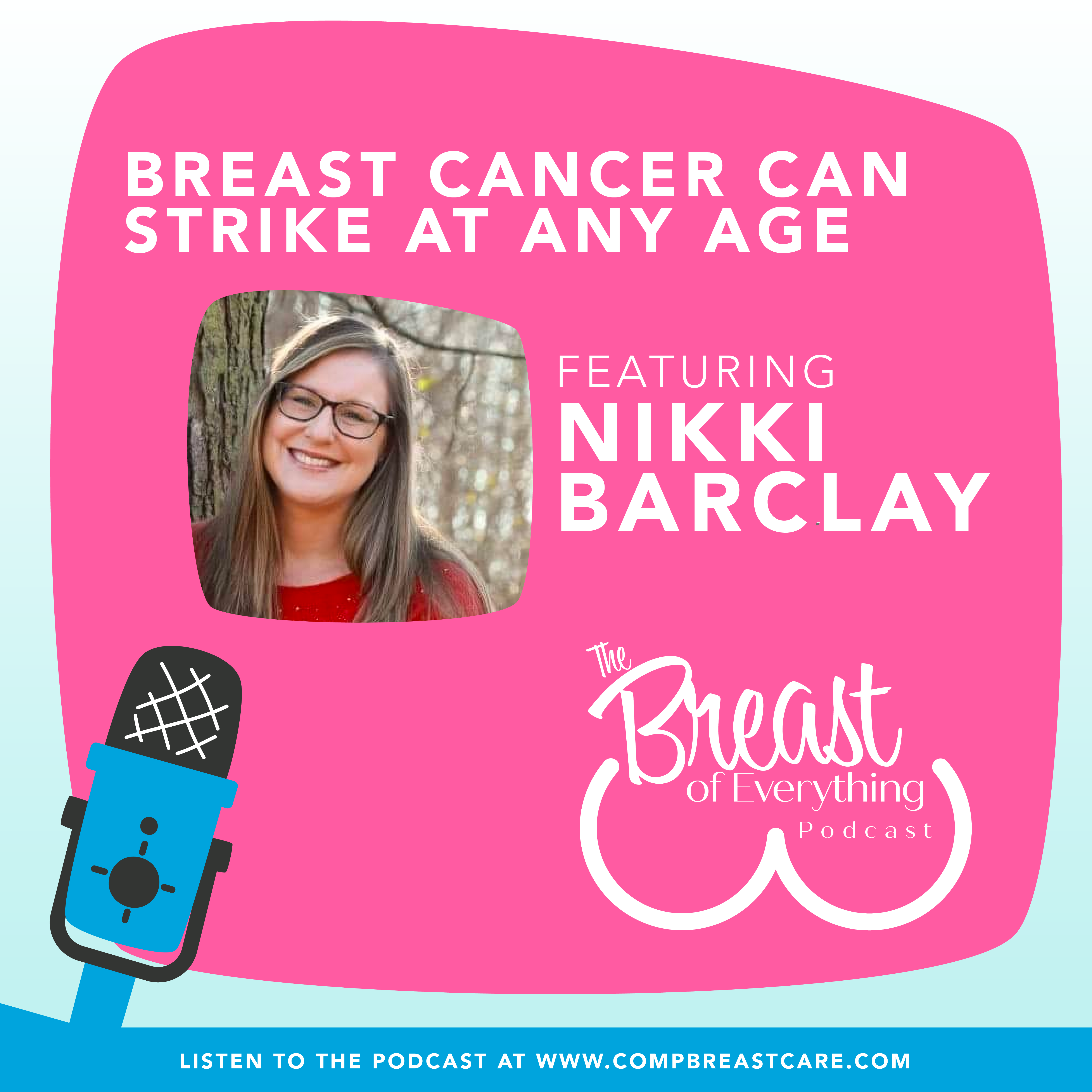Nikki Barclay on
Breast cancer can strike at any age
Young cancer survivor spreads hope to others

Nikki Barclay just turned 41 when she learned she had breast cancer. “My doctor recommended I start having mammograms every year beginning at age 40. This was my second routine screening,” or so she thought. “I did not expect any issues at all, especially at my age,” she begins telling her story during The Breast of Everything podcast.
The mammogram showed suspicious-looking calcium deposits that required a biopsy. The results? Nikki had extensive DCIS (ductal carcinoma in situ), considered the earliest form of breast cancer
“This was my second mammogram ever, and this happens to me?” Nikki was in shock.
“I went to see Dr. Richardson right away.” Ashley Richardson, DO, FACOS, breast surgeon with Comprehensive Breast Care, sat with Nikki and her husband and discussed all of Nikki’s options in detail.
“I could see the cloud come over her face and knew any information I told her wouldn’t register,” Dr. Richardson notes. “That is why I always encourage my patients to bring a family member with them during the initial consult.”
“I remember her (Dr. Richardson) telling my husband, ‘Nikki isn’t going to remember much of our conversation, so I need a second set of ears.’
“I also remember crying a lot. It was all so overwhelming. I was young, I didn’t feel any lumps in my breast, I didn’t feel sick … this wasn’t supposed to happen to me,” Nikki kept saying to herself in the midst of her tears.
During this first visit, Dr. Richardson also discussed genetic testing and why she felt Nikki should be tested.
The mother of Nikki’s father had breast cancer and her sister had breast cancer and so did the sister of Nikki’s mother. But Nikki’s mother never had it, so Nikki really wasn’t concerned about her family history. “It never crossed my mind about genetic testing,” she says.
Nikki agreed to the test and the results showed she was carrying the BRCA2 mutation. Only 5 percent to 10 percent of breast cancer cases in women are attributed to BRCA1 and BRCA2 mutations, but these women have a much higher risk for breast cancer and ovarian cancer.
Nikki turned her focus to her family. She worried about her sister who, after hearing the results of Nikki’s test, decided to be tested, too. She learned she also carries the gene mutation. The good news was that Nikki’s sister could begin taking proactive steps to reduce her cancer risk.
“I didn’t realize how having this information would benefit me and my family,” Nikki notes. And of course, she was worried about her kids carrying the mutation. Boys also can carry the BRCA gene.
“It was extremely emotional,” Nikki tears up easily. “It’s still emotional a year later.
“I think the hardest part for me was that I couldn’t do my mom duties. I couldn’t pick up my kids, I couldn’t get them in and out of the bathtub, I couldn’t hold them on my lap … I couldn’t be the mom I wanted to be.”
Her boys were 2 and 5 at the time of Nikki’s diagnosis. “I didn’t want the kids to see me going through this and I definitely didn’t want them seeing me in the hospital after my surgery, but I needed them, which made it such a difficult time for me,” she reflects.
Nikki chose a double mastectomy followed by immediate breast reconstruction. “This was for my self-image,” she notes. “I wanted to feel and look like myself as much as possible.”
Shortly after her surgery, Nikki barely had time to release a sigh of relief when she got the news that more cancer had been found. This meant the current treatment plan was pushed aside and an entirely new course of treatment had to be developed. It included chemotherapy and 33 rounds of radiation. In addition, more tests needed to be conducted to see if the cancer had spread to other areas of her body. Some promising news finally came Nikki’s way – she received an “all clear” from her doctors.
“I remember Dr. Richardson telling me there was a light at the end of the tunnel, but I couldn’t see it; she kept telling me I would, but at the time, I wasn’t as optimistic as she was,” Nikki reports.
But, finally, months later, Nikki did see the light at the end of the tunnel that Dr. Richardson promised her. She now has resumed her daily routine of work and family and is loving every single minute of it.
She concludes her story with one simple message: get your annual mammogram! “I thought because of my age nothing would happen to me. But my cancer was found in a very early stage, thanks to that mammogram!”
Nikki also encourages women to talk with their doctor about genetic testing. “It can save lives!” she announces.
To hear Nikki’s full story, listen to this episode of The Breast of Everything podcast.
